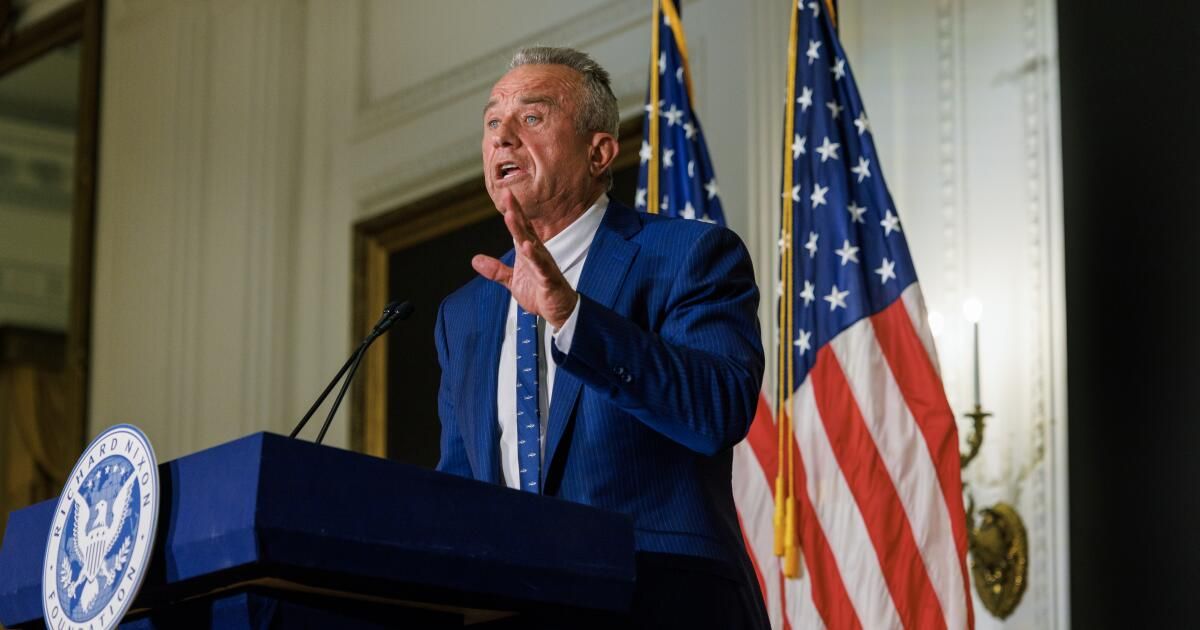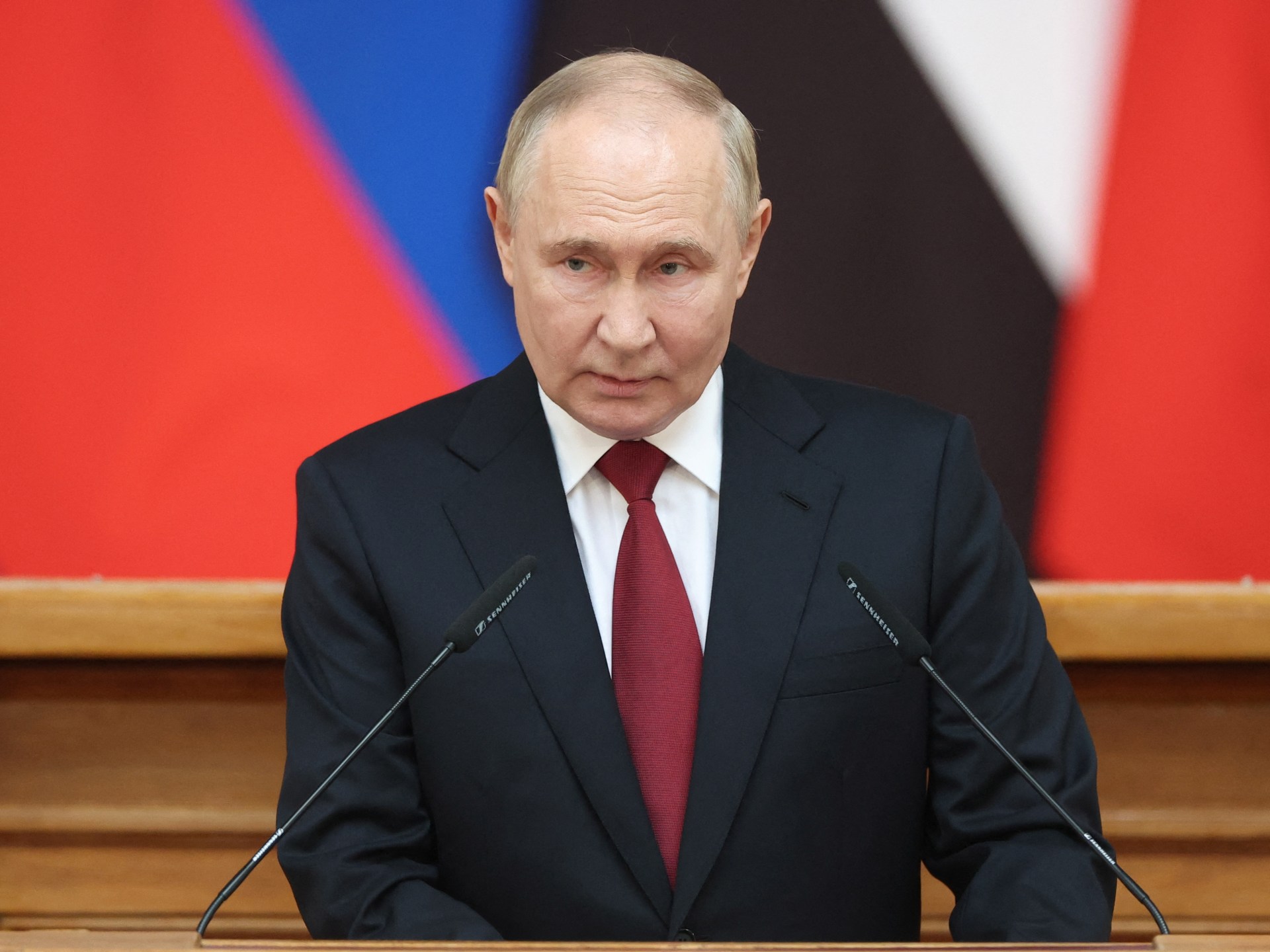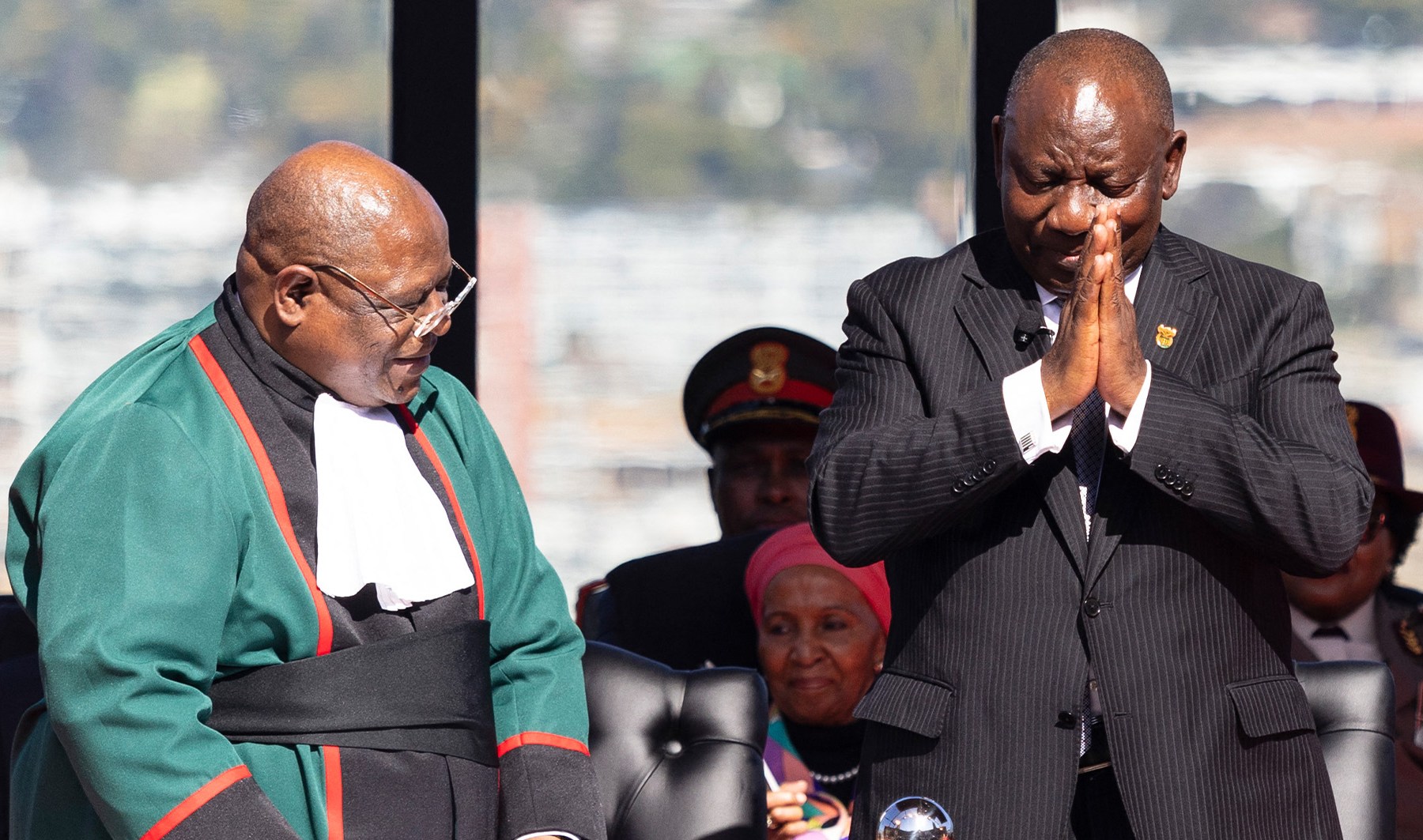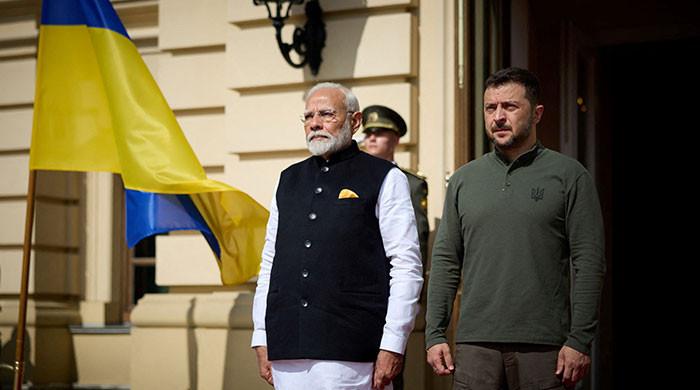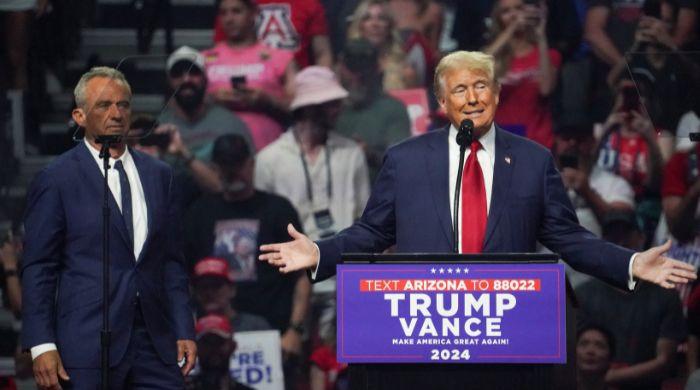Robert F. Kennedy Jr. told an audience in Orange County Wednesday night that the United States faces an existential threat because of its insistence on behaving like an imperial power rather than the moral leader it should be in the world.
The independent presidential candidate said he would reverse the nation's “decline” by cutting the U.S. military budget in half in his first three years in office – with additional reductions to come – and using the savings to boost domestic programs and the economy. .
“In the end, we are going to have a stronger, smarter, better targeted national defense,” Kennedy said. “If we use those savings to rebuild our country in every way, we will reverse … spending that is a constant drain on the vitality of our nation.”
Kennedy spoke to a crowd of about 300 people at the Richard Nixon Presidential Library and Museum in Yorba Linda, the latest in a series of speakers including former Vice President Mike Pence, former U.N. Ambassador Nikki Haley, businessman Vivek Ramaswamy and former Arkansas Governor Asa. Hutchinson: Appearing as part of the Presidential Policy Perspectives series.
Kennedy, 70, has previously lamented that the “peace dividend” – anticipated with the easing of tensions with the former Soviet Union in the 1980s – did not result in a greater shift of government funding toward the internal affairs.
Kennedy spoke to a crowd of about 300 people at the Nixon Library.
(Gina Ferazzi / Los Angeles Times)
But a massive reduction in defense spending would be very difficult to pass in Congress and is a much more radical change than suggested by the leading presidential candidates.
The candidate, an environmental lawyer, said the country should learn lessons not only from his uncle, President Kennedy, but also from President Nixon, JFK's rival.
Kennedy said both presidents understood that the United States left a better mark on the world when it projected its power not through force but through moral leadership, economic initiatives and programs like the Peace Corps.
Kennedy said China had a smarter approach to foreign affairs, spending less money on its military and more on developing nations in Africa, South America and other regions.
“They spent $8 billion on bridges, roads, airports, schools and hospitals. … They were projecting economic power, rather than military power,” he said. “Our eternal wars around the world made us enemies around the world and left us bankrupt. China's investments, on the other hand, [were] make friends around the world and [winning] broader influence in all corners of the Earth.
“We can't keep pretending that we rule the world,” he continued, suggesting that the United States' status in the world will improve when it no longer tries to dictate to other nations. “Paradoxically, by releasing the ambition to dominate we will once again achieve a position of primacy in the world.”
Although Kennedy claimed last week that he had qualified for election in enough states to win the presidency, at least 10 of the states have not certified his candidacy. Most analysts still consider him a longshot candidate, but he could potentially tip the race toward President Biden or former President Trump.
Kennedy has been widely rebuked in the past for his views, particularly on vaccines, which he had previously suggested could cause autism, a view debunked by mainstream science; and for saying that Jews in Nazi Germany had more freedom than Americans under COVID-19 mandates, a view for which he later apologized.
He opened the speech with a 20-minute critique of the country's lockdown at the start of the COVID-19 pandemic, saying it had dealt a devastating blow to civil liberties.
When he got to the topic of foreign affairs, he painted a bleak picture of the nation's impact on the rest of the world. Kennedy suggested that American belligerence had unleashed massive instability following the wars in Iraq and Afghanistan.
“We created ISIS,” he said, using an acronym sometimes used for the Islamic State militant group. He said those conflicts had forced 4 million migrants to Europe, which had served to “destabilize all Western democracies.”
Kennedy was warmly received by the audience, which included several of his supporters who joined him at a reception before the hour-long speech. The crowd also included members of the museum and other members of the general public who said they were curious to see a politician some said they knew little about.
“I want to see if this guy has the courage and leadership.” said Bob Torrez, a steel company executive who lives in Orange. “Is this the guy that I think he could take America to a better place? Obviously we need to improve. “We are weak.”
Department of Defense data show that the share of gross domestic product devoted to defense has fallen to just over 3% in recent years, from a high of more than 11% during the Korean War and about 4.5 % during the wars in Iraq and Afghanistan. . According to Econofact.org: “The U.S. economy has tended to grow faster than military spending, so defense spending as a percentage of GDP has been declining.”
But the United States spends far more than other nations, including other global powers. In 2023, the Pete G. Peterson Foundation found that America's $877 billion in defense spending exceeded the next 10 countries' combined spending of $849 billion.
“Even as its military technology has reigned supreme, the United States has been hollowed out from within,” Kennedy's website says. “We cannot be a strong or secure nation when our infrastructure, industry, society and economy are weak.”
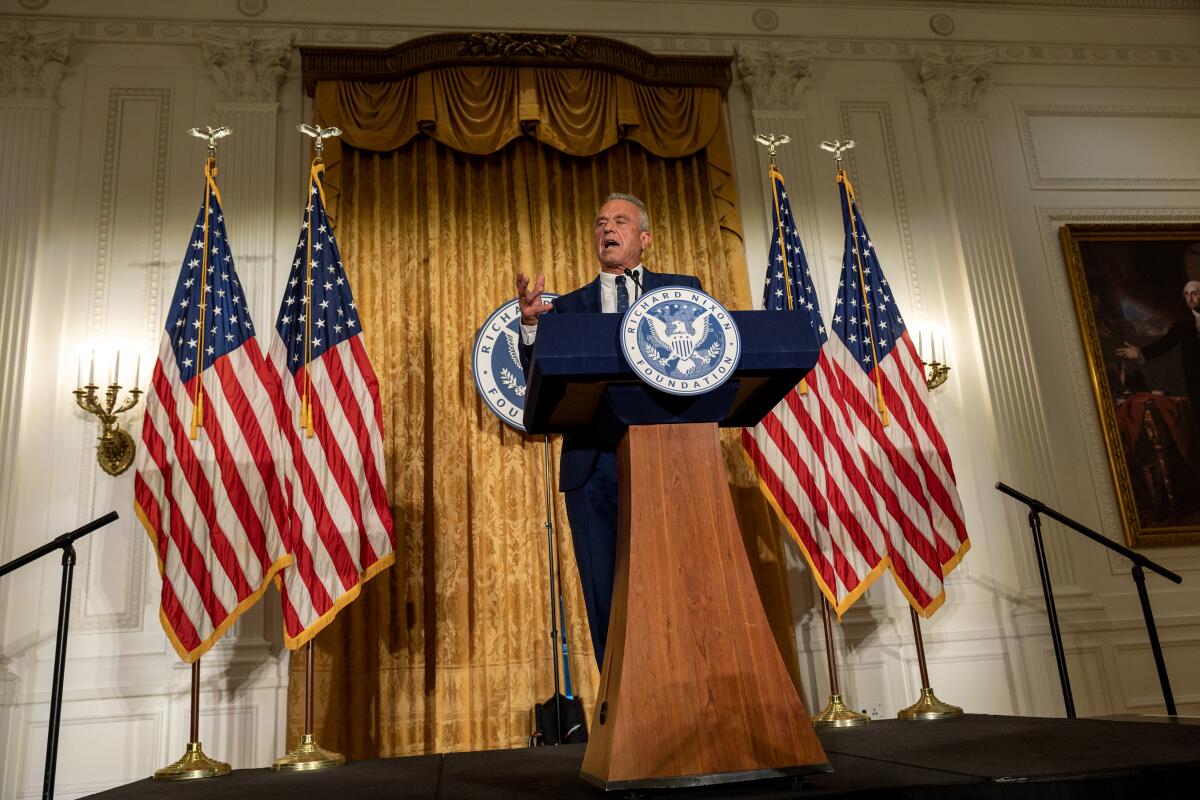
Kennedy called for massive cuts in defense spending.
(Gina Ferazzi / Los Angeles Times)
The candidate previously called on the United States to end its “imperial project” and “address everything that has been neglected: the crumbling cities, the antiquated railroads, the failing water systems, the decaying infrastructure, the ailing economy.” ”.
Kennedy told the audience that the United States suffers from “decaying infrastructure, an epidemic of chronic disease, a plague of addiction and historic economic inequality.”
The candidate said the country needed to rebuild to reduce runaway deficits and strengthen the dollar. While foreign nations have used the dollar as a reserve currency, that could change if the United States does not adopt more sensible spending, he said.
“While the United States was the undisputed global superpower…we were like a teenage bully on a third-grade playground. We should set the rules for everyone else,” she said. “But now the third graders have seen through our bluster and are no longer scared.”

